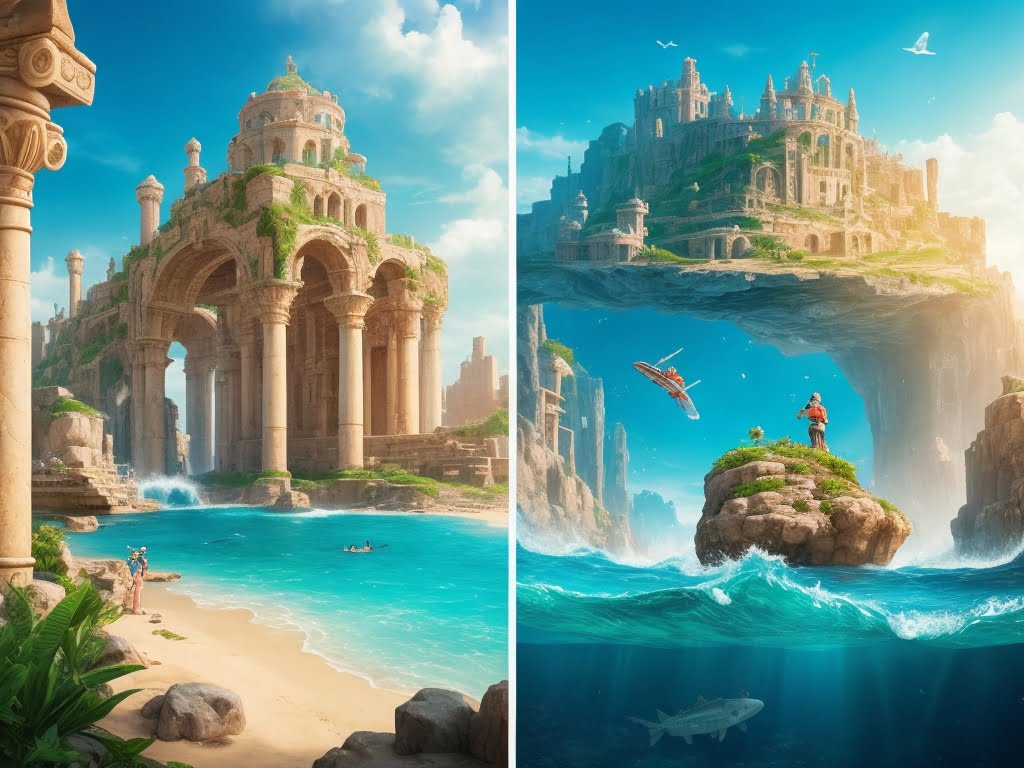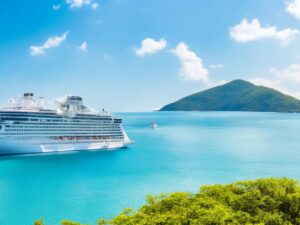Embark on a captivating journey into the depths of the Mediterranean as we explore cruising tales of Odysseus and Atlantis – the enchanting sea legends that have captivated our imaginations for centuries. From the epic adventures of Odysseus, the hero of Homer’s “The Odyssey,” to the mysterious and elusive lost city of Atlantis, these stories continue to intrigue and fascinate us. Brace yourself for a thrilling exploration as we unravel the secrets and myths that lie beneath the surface of the sea, revealing the awe-inspiring tales of bravery, beauty, and wonder that have been passed down through generations. Get ready to be swept away by the allure of the sea as we navigate through these timeless legends, delving into their mysteries and uncovering the truth behind their enduring allure.
Table of Contents
ToggleCruising Tales of Odysseus and Atlantis
Exploring the Sea Legends: Unraveling the Tales of Odysseus and Atlantis
Sea Legends and Myths: Delving into the fascinating legends and tales associated with the Mediterranean, like the tales of Odysseus or the lost city of Atlantis.
I. The Odyssey of Odysseus
A. Introduction to Odysseus
Odysseus, the legendary hero of ancient Greece, is known for his incredible journey back home after the Trojan War. He was renowned for his intelligence, cunning, and strategic thinking, which helped him overcome numerous challenges and tests along the way. The epic poem, “The Odyssey” by Homer, chronicles his adventures and serves as a testament to his resilience and determination.
B. Odysseus’ encounter with the Cyclops
One of the most memorable encounters in Odysseus’ journey is his encounter with the Cyclops Polyphemus. After being trapped inside the Cyclops’ cave, Odysseus devises a clever plan to blind the giant and escape with his men. This incident not only demonstrates Odysseus’ resourcefulness but also highlights the importance of wit and intelligence in solving problems.
C. Odysseus’ encounters with Circe and the Sirens
During his journey, Odysseus faces various mythical creatures and enchantresses. One such encounter is with the sorceress Circe, who turns some of his crew into pigs. With the help of the god Hermes, Odysseus outwits Circe and eventually convinces her to release his men. Similarly, Odysseus encounters the enchanting Sirens, whose bewitching voices lure sailors to their doom. By having his men plug their ears and tying himself to the ship’s mast, Odysseus successfully resists the Sirens’ song, showcasing his ability to resist temptations.
D. Odysseus’ journey through the underworld
In his quest to return home, Odysseus must journey to the underworld, encountering various spirits and seeking guidance from the dead. This arduous journey allows Odysseus to gain insights and knowledge about his future, as well as offering him a chance to honor fallen comrades. It emphasizes Odysseus’ willingness to face even the most perilous challenges in order to find his way back to his loved ones.
E. Odysseus’ return to Ithaca
After a long and treacherous journey, Odysseus finally returns to his homeland of Ithaca. Disguised as a beggar, he carefully plans his revenge against the suitors who have taken over his palace and tried to marry his wife, Penelope. With the help of his son Telemachus and the goddess Athena, Odysseus ultimately triumphs and reunites with his wife, marking the end of his epic quest and solidifying his status as a legendary hero.
II. The Myth of Atlantis
A. Overview of Atlantis
The myth of Atlantis, a lost city submerged beneath the sea, has captivated the imagination of people for centuries. The story of Atlantis is believed to originate from the ancient Greek philosopher Plato, who described it as a powerful and advanced civilization that eventually met its tragic fate.
B. The origins of Atlantis
According to Plato’s account, Atlantis was located beyond the Pillars of Hercules (now known as the Strait of Gibraltar) and existed around 9,000 years before his time. He claimed that Atlantis was a prosperous and technologically advanced society that held dominion over many other islands and parts of the Western Mediterranean.
C. Description of Atlantis’ civilization
Plato described the Atlanteans as a noble and virtuous people, with a sophisticated political system and advanced technology. The city of Atlantis was said to be a marvel of engineering, featuring concentric rings of water and land, with a monumental central palace. The Atlanteans were known for their wealth, naval power, and knowledge of the arts and sciences.
D. The downfall of Atlantis
According to Plato, Atlantis fell out of favor with the gods due to its citizens’ increasing pride and corruption. As punishment, the gods sent a catastrophic event, causing Atlantis to be swallowed by the sea in a single day and night. This cataclysmic event and the subsequent disappearance of Atlantis became an enduring myth that has fascinated explorers and historians throughout history.
E. The location and exploration of Atlantis
The search for the real location of Atlantis has been a subject of speculation and exploration for centuries. Various theories have placed Atlantis in locations ranging from the Caribbean to the Mediterranean. Despite numerous expeditions and investigations, no concrete evidence has been found to support the existence or location of Atlantis. However, the myth of Atlantis continues to inspire awe and curiosity, fueling the imagination of both scholars and the general public.
III. Comparing Odysseus and Atlantis
A. Similarities between Odysseus and Atlantis
While Odysseus and Atlantis are separate legends, they share certain similarities that make them intriguing to explore side by side. Both tales involve journeys and voyages, where the protagonists face challenges and encounters with mythical creatures or civilizations. Odysseus and Atlantis are also symbols of human ambition, resilience, and the consequences of hubris.
B. Influence of Odysseus on Atlantis myth
The epic adventures of Odysseus have had a significant impact on the myth of Atlantis. Odysseus’ encounters with monsters, enchantresses, and gods parallel the challenges faced by the Atlanteans and their eventual downfall. The cunning and resourcefulness displayed by Odysseus may have influenced Plato’s portrayal of the Atlanteans as a proud and technologically advanced civilization.
C. Lessons learned from Odysseus and Atlantis
The legends of Odysseus and Atlantis offer valuable insights and lessons. Odysseus teaches us about the power of perseverance, intelligence, and adaptability in the face of adversity. His journey serves as a reminder that one’s willpower and determination can overcome even the most daunting challenges. On the other hand, the story of Atlantis warns against the dangers of arrogance and unchecked ambition. It reminds us of the importance of humility and balance in our pursuit of power and knowledge.
IV. Debunking the Legends
A. Historical basis of Odysseus’ journey
While Odysseus’ journey may be fictional, it is likely influenced by real historical events. The Trojan War, for example, is believed to have been an actual conflict that occurred between the late Bronze Age civilizations of Greece and Troy. The adventures and encounters Odysseus faces on his way back to Ithaca may have been inspired by the experiences of ancient seafarers and the hazards they encountered during their voyages.
B. Searching for evidence of Atlantis
Despite numerous efforts, the search for tangible evidence of Atlantis remains elusive. Many theories and expeditions have attempted to uncover Atlantis’ location, but none have been able to provide conclusive proof. The lack of physical evidence has led many to view Atlantis as purely mythical or allegorical in nature, representing the fallibility of human civilization.
V. Modern Interpretations and Impact
A. Influence of Odysseus and Atlantis on literature and art
The tales of Odysseus and Atlantis have had a profound impact on literature and art across various cultures and time periods. Countless authors and artists have drawn inspiration from these legends, incorporating themes and motifs into their works. The adventures of Odysseus continue to serve as a archetype for the hero’s journey, while the myth of Atlantis has influenced works exploring the rise and fall of civilizations.
B. Contemporary theories about Atlantis
Despite the lack of concrete evidence, modern scholars and researchers continue to propose theories about the existence and location of Atlantis. Some believe that Atlantis may have been a real place that was destroyed or lost due to natural disasters, while others consider it a purely fictional creation by Plato. The ongoing debate and speculation surrounding Atlantis keep the mystery alive and encourage further exploration and discovery.
C. Popular culture references to Odysseus and Atlantis
Odysseus and Atlantis have become cultural touchstones that are referenced in various forms of popular media. Movies, TV shows, books, and video games frequently incorporate elements from the Odyssey or depict the mysterious lost city of Atlantis. These references not only keep the legends alive but also introduce them to new generations, ensuring their enduring legacy.
In conclusion, the tales of Odysseus and Atlantis continue to capture the imagination and fascination of people throughout history. Whether exploring the epic adventures of the heroic Odysseus or pondering the mysteries of the lost city of Atlantis, these legends have left an indelible mark on our culture. While the truth behind these stories may forever remain elusive, their enduring popularity is a testament to the enduring power of mythology and the human desire to unravel the mysteries of the sea.





